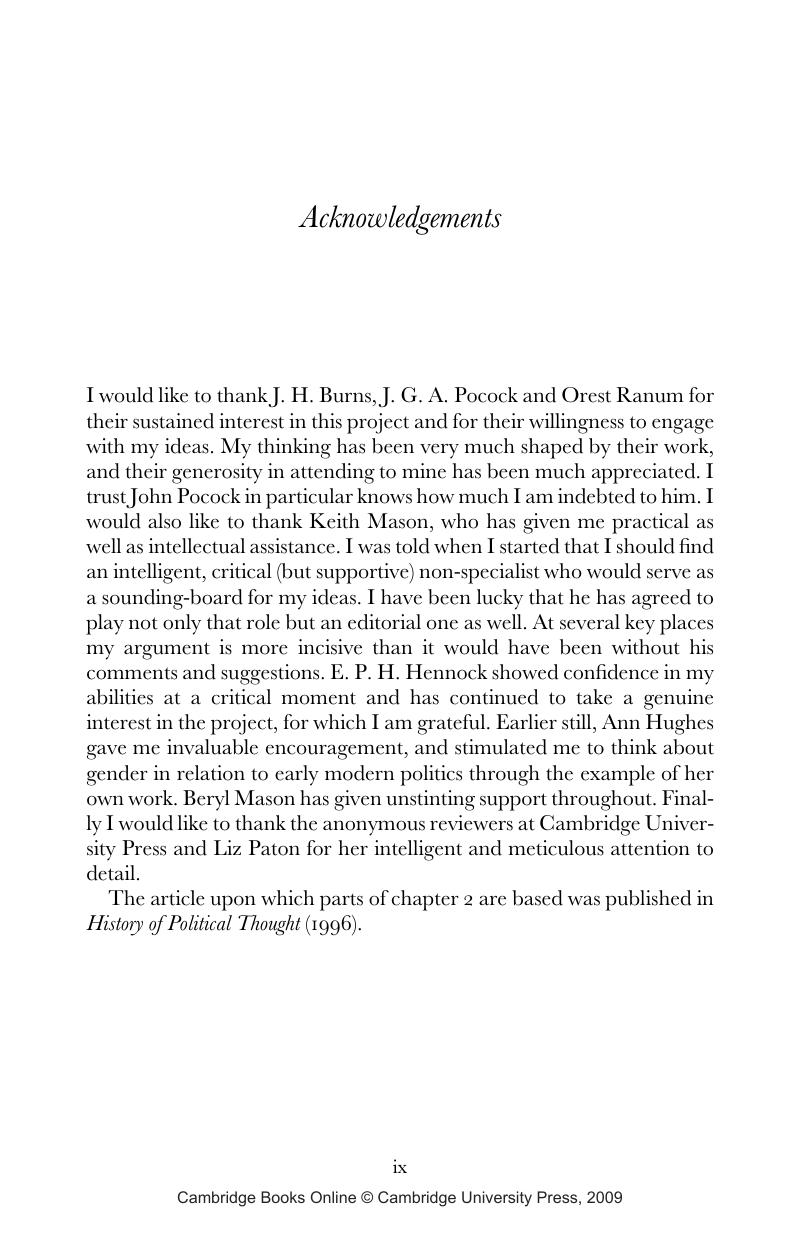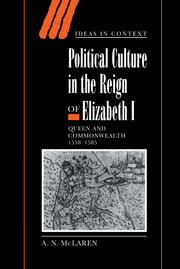Book contents
- Frontmatter
- Contents
- Acknowledgements
- Introduction
- 1 ‘To be Deborah’: the political implications of providentialism under a female ruler
- 2 Announcing the godly common weal: Knox, Aylmer and the parameters of counsel
- 3 Feats of incorporation: the ideological bases of the mixed monarchy
- 4 Contesting the social order: ‘resistance theory’ and the mixed monarchy
- 5 Godly men and nobles: the bicephalic body politic
- 6 Godly men and parliamentarians: the politics of counsel in the 1570s
- 7 Rewriting the common weal: Sir Thomas Smith and the De Republica Anglorum
- Afterword
- Bibliography
- Index
- IDEAS IN CONTEXT
Acknowledgements
Published online by Cambridge University Press: 06 August 2009
- Frontmatter
- Contents
- Acknowledgements
- Introduction
- 1 ‘To be Deborah’: the political implications of providentialism under a female ruler
- 2 Announcing the godly common weal: Knox, Aylmer and the parameters of counsel
- 3 Feats of incorporation: the ideological bases of the mixed monarchy
- 4 Contesting the social order: ‘resistance theory’ and the mixed monarchy
- 5 Godly men and nobles: the bicephalic body politic
- 6 Godly men and parliamentarians: the politics of counsel in the 1570s
- 7 Rewriting the common weal: Sir Thomas Smith and the De Republica Anglorum
- Afterword
- Bibliography
- Index
- IDEAS IN CONTEXT
Summary

- Type
- Chapter
- Information
- Political Culture in the Reign of Elizabeth IQueen and Commonwealth 1558–1585, pp. ix - xPublisher: Cambridge University PressPrint publication year: 1999

